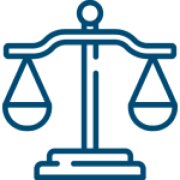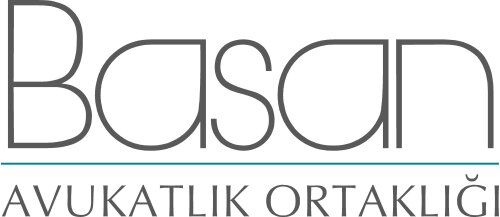Best Art & Cultural Property Law Lawyers in Cankaya
Share your needs with us, get contacted by law firms.
Free. Takes 2 min.
List of the best lawyers in Cankaya, Turkey
About Art & Cultural Property Law in Cankaya, Turkey
Art & Cultural Property Law in Cankaya, a district in the vibrant heart of Turkey's capital, Ankara, is a specialized field that covers legal issues relating to the preservation, protection, and management of cultural heritage. This area of law is crucial in a region rich in history and archaeological significance, addressing the need to protect valuable cultural assets from illegal excavation, exportation, and other forms of exploitation. Given its significance as a cultural hub, Cankaya plays a key role in upholding national and international standards for heritage conservation.
Why You May Need a Lawyer
Individuals and institutions may require legal assistance in Art & Cultural Property Law for a variety of reasons:
- Acquiring, selling, or donating artworks or cultural artifacts, which is subject to rigorous legal regulations.
- Dealing with disputes over cultural property ownership or provenance, often involving complex historical documentation.
- Navigating the legal intricacies of cultural property restitution or repatriation claims.
- Ensuring compliance with laws regarding cultural heritage protection, which can include restrictions on land use and development.
- Addressing issues related to the illegal trafficking or exportation of cultural artifacts, a problem that requires adept legal handling.
Local Laws Overview
The legal framework governing Art & Cultural Property in Cankaya is shaped by both national Turkish laws and international conventions to which Turkey is a signatory. Key laws include:
- The Turkish Constitution, which enshrines the protection of cultural heritage as a state duty.
- The Law on the Protection of Cultural and Natural Assets (Law No. 2863), which outlines the management and protection of Turkey's historical sites and cultural artifacts.
- International treaties such as the UNESCO World Heritage Convention and UNIDROIT Convention on Stolen or Illegally Exported Cultural Objects, which establish guidelines and commitments for protecting cultural heritage.
These laws collectively ensure that cultural assets are safeguarded and responsibilities are assigned to public authorities and private owners alike.
Frequently Asked Questions
What constitutes a cultural property under Turkish law?
Cultural property refers to items of historical, artistic, or archaeological significance, including artifacts, artwork, manuscripts, and historical structures.
Is it legal to buy or sell cultural artifacts in Turkey?
The trade of cultural artifacts is heavily regulated. Legal transactions require proper documentation and approval from the relevant authorities to ensure that items are not illegally obtained or exported.
What should I do if I discover an archaeological find on my property?
Under Turkish law, any archaeological finds must be reported to the Ministry of Culture and Tourism. Unauthorized excavation or withholding information can lead to legal penalties.
How are cultural heritage sites protected in Cankaya?
Sites of historical importance are identified and managed by relevant governmental bodies, which implement protective measures including restrictions on construction and alteration.
What are the penalties for illegal trafficking of cultural property?
Penalties can include hefty fines and imprisonment. The severity depends on factors such as the artifact's value and historical importance.
How can I prove the provenance of an artwork?
Maintaining thorough documentation such as purchase receipts, expert assessments, and historical records is essential. A lawyer can assist in compiling and verifying this information.
Can cultural property be inherited or donated?
Yes, but any transaction involving cultural property must adhere to specific legal requirements, including assessments and government approvals.
What international protections are in place for cultural property?
Turkey is a member of several international conventions that combat trafficking and ensure the repatriation of stolen cultural assets. These include agreements facilitated by UNESCO and UNIDROIT.
Who manages cultural heritage in Cankaya?
The Ministry of Culture and Tourism, along with local cultural directorates, oversees the management and protection of cultural heritage in Cankaya and beyond.
How can I stay updated on legal changes regarding cultural property?
Consultation with a specialized lawyer and following publications from the Ministry of Culture and Tourism are effective ways to keep informed about legal updates.
Additional Resources
Here are some resources for further assistance:
- Ministry of Culture and Tourism: The primary body for managing and preserving cultural assets in Turkey.
- Cultural Heritage and Museums General Directorate: Provides information on laws and regulations specific to museums and heritage sites.
- UNESCO National Commission of Turkey: Offers resources on international cooperation and standards.
- Local Museums and Cultural Centers: Often have educational programs and legal advice specific to art and cultural property.
Next Steps
If you need legal assistance in Art & Cultural Property Law in Cankaya, consider the following steps:
- Identify your specific legal needs by understanding the scope of your issue, whether it involves purchase, sale, preservation, or legal compliance.
- Consult with a lawyer who specializes in Art & Cultural Property Law to get tailored advice and representation.
- Gather any pertinent documentation related to your case before your consultation.
- Reach out to local cultural bodies or organizations for preliminary guidance and to explore available resources and support.
Engaging an experienced legal professional will provide clarity and ensure you uphold the legal standards required in Turkey for art and culture-related matters.
Lawzana helps you find the best lawyers and law firms in Cankaya through a curated and pre-screened list of qualified legal professionals. Our platform offers rankings and detailed profiles of attorneys and law firms, allowing you to compare based on practice areas, including Art & Cultural Property Law, experience, and client feedback.
Each profile includes a description of the firm's areas of practice, client reviews, team members and partners, year of establishment, spoken languages, office locations, contact information, social media presence, and any published articles or resources. Most firms on our platform speak English and are experienced in both local and international legal matters.
Get a quote from top-rated law firms in Cankaya, Turkey — quickly, securely, and without unnecessary hassle.
Disclaimer:
The information provided on this page is for general informational purposes only and does not constitute legal advice. While we strive to ensure the accuracy and relevance of the content, legal information may change over time, and interpretations of the law can vary. You should always consult with a qualified legal professional for advice specific to your situation.
We disclaim all liability for actions taken or not taken based on the content of this page. If you believe any information is incorrect or outdated, please contact us, and we will review and update it where appropriate.









